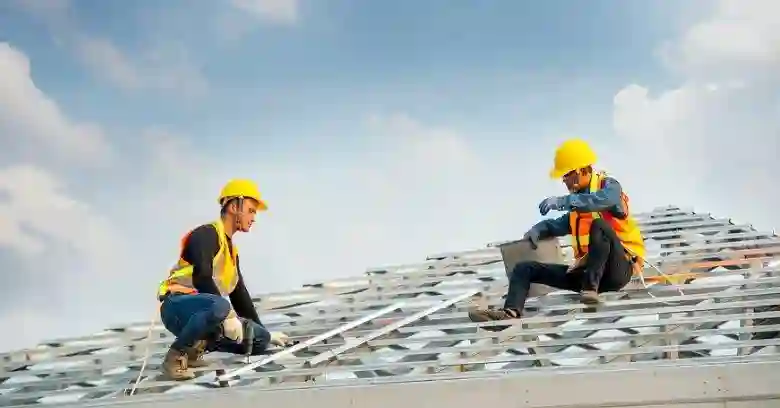Hiring a roofing contractor to work on your home or property is a significant investment, and you want the assurance that the work performed will stand the test of time. Roofing projects can be expensive, and ensuring the longevity and durability of your roof is crucial. One of the ways to secure your investment is through roofing contractor warranties. In this article, we’ll explore what you should expect from roofing contractor warranties, how they provide long-term protection, and the key factors to consider when reviewing them.
The Importance of Roofing Contractor Warranties
Roofing contractor warranties are legal agreements that outline the scope of coverage and protection for your roofing project. They provide you with peace of mind, knowing that if issues arise with your roof after the work is completed, you have recourse to address them without incurring additional expenses. Here’s why roofing contractor warranties matter:
- Quality Assurance: A roofing contractor warranty is a testament to the contractor’s confidence in the quality of their work. Contractors offering warranties are more likely to prioritize quality materials and workmanship.
- Financial Protection: Roofing projects can be a significant financial investment. Warranties provide financial protection by covering repairs or replacements in the event of defects or issues.
- Long-Term Value: A warranty ensures the long-term value of your roofing project. It extends the lifespan of your roof, protecting your property for years to come.
- Peace of Mind: Knowing that your investment is backed by a warranty gives you peace of mind. You won’t have to worry about unexpected roofing expenses if problems arise.
Types of Roofing Contractor Warranties
Roofing contractor warranties can vary in terms of coverage, duration, and conditions. Understanding the different types of warranties is essential when evaluating roofing contractors and their offers:
- Workmanship Warranty: This warranty covers issues related to the installation or workmanship of the roofing project. It typically has a duration of 1 to 5 years and addresses problems like leaks caused by improper installation.
- Manufacturer’s Warranty: The manufacturer’s warranty covers defects in roofing materials. It can vary in duration, typically ranging from 10 to 50 years or more, depending on the type and quality of materials used.
- Combined Warranty: Some roofing contractors offer combined warranties that encompass both workmanship and materials. These warranties provide comprehensive coverage for the entire roofing system.
- Extended Warranty: Extended warranties may be available for purchase. They provide longer protection beyond standard warranties, giving you added peace of mind.
- Limited Lifetime Warranty: This type of warranty, often offered for premium roofing materials, can last as long as you own your property. It provides extended coverage for the entire roofing system.
Key Factors to Consider in Roofing Contractor Warranties
When reviewing roofing contractor warranties, several critical factors should be taken into account to ensure that you receive the protection you expect:
- Duration: Determine the length of the warranty. A longer warranty provides more extended protection, but be sure to understand the terms and conditions that apply.
- Coverage: Review what is covered and what is excluded under the warranty. Ensure that it addresses the specific roofing materials and workmanship involved in your project.
- Transferability: Some warranties are transferable to future property owners, which can be a valuable selling point if you plan to sell your property.
- Prorated or Non-Prorated: Prorated warranties reduce coverage over time, while non-prorated warranties maintain full coverage throughout the warranty period. Understand which type of warranty you’re receiving.
- Required Maintenance: Warranties often require regular maintenance to remain valid. Be aware of any maintenance obligations and keep records of inspections and repairs.
- Notification Requirements: In the event of an issue, warranties may have specific notification requirements. Failure to notify the contractor promptly could void the warranty.
- Claims Process: Understand the process for filing warranty claims and the timeframe in which claims must be submitted. Ensure that you have all necessary documentation.
- Exclusions and Limitations: Be aware of any exclusions or limitations that may restrict coverage, such as acts of nature or damage caused by third parties.
- Contractor’s Reputation: Research the contractor’s reputation and inquire about their history of honoring warranties. Read reviews and seek references if necessary.
- Manufacturer’s Warranty: If the warranty includes manufacturer coverage, review the manufacturer’s reputation and their warranty terms as well.
- Additional Costs: Determine if there are any additional costs associated with warranty claims, such as labor or transportation fees.
Ensuring Warranty Compliance
To ensure that your roofing contractor warranty remains valid and effective, it’s essential to follow these best practices:
- Regular Maintenance: Adhere to the required maintenance schedule outlined in the warranty. Regular inspections and minor repairs can prevent more extensive issues.
- Keep Records: Maintain records of all maintenance and repairs related to your roofing system. Documentation will be essential if you need to file a warranty claim.
- Prompt Notification: In the event of a problem covered by the warranty, notify the roofing contractor promptly and follow the prescribed claims process.
- Professional Inspections: If you suspect an issue with your roof, have it inspected by a professional roofing contractor. Attempting DIY repairs may void the warranty.
- Choose a Reputable Contractor: Work with a reputable and experienced roofing contractor who is known for honoring warranties and providing quality workmanship.
- Understand Terms and Conditions: Familiarize yourself with the terms and conditions of the warranty and ensure that you comply with all requirements.
In Conclusion
Roofing contractor warranties are a critical component of any roofing project, providing long-term protection for your investment. By understanding the types of warranties available, reviewing the key factors that influence coverage, and adhering to warranty compliance practices, you can secure your roofing project’s durability and enjoy peace of mind knowing that your property is protected for years to come. When evaluating roofing contractors, consider their warranty offerings as a crucial factor in your decision-making process.








